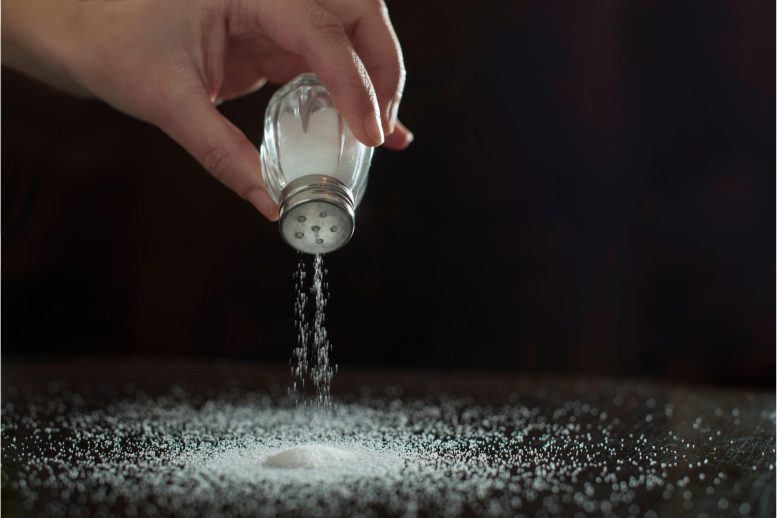
A Tulane University study links frequent salt addition to foods with a higher risk of Type 2 diabetes, suggesting that reducing salt intake could be a vital preventive measure. Over 400,000 individuals were surveyed, revealing up to a 39% increased risk for regular salt users, thereby highlighting the benefits of low-sodium diets in mitigating diabetes risk.
A study has, for the first time, linked frequent salt consumption to Type 2 diabetes.
Those at risk for Type 2 diabetes may already know to avoid sugar, but new research suggests they may want to skip the salt as well.
A study recently conducted by Tulane University, published in the journal Mayo Clinic Proceedings, reveals that frequently adding salt to foods to food was associated with an increased risk of developing Type 2 diabetes.
Study Findings and Implications
The study surveyed more than 400,000 adults registered in the UK Biobank about their salt intake. Over a median of 11.8 years of follow-up, more than 13,000 cases of Type 2 diabetes developed among participants. Compared to those who “never” or “rarely” used salt, participants who “sometimes,” “usually,” or “always” added salt had a respective 13%, 20%, and 39% higher risk of developing Type 2 diabetes.
Association with Other Health Risks
“We already know that limiting salt can reduce the risk of cardiovascular diseases and hypertension, but this study shows for the first time that taking the saltshaker off the table can help prevent Type 2 diabetes as well,” said lead author Dr. Lu Qi, HCA Regents Distinguished Chair and professor at the Tulane University School of Public Health and Tropical Medicine.
Further research is needed to determine why high salt intake could be linked to a higher risk of Type 2 diabetes. However, Qi believes salt encourages people to eat larger portions, increasing the chances of developing risk factors such as obesity and inflammation. The study found an association between frequent consumption of salt and higher BMI and waist-to-hip ratio.
Qi said the next step is to conduct a clinical trial controlling the amount of salt participants consume and observing the effects.
Still, Qi said it’s never too early to start searching for low-sodium ways to season your favorite foods.
“It’s not a difficult change to make, but it could have a tremendous impact on your health,” Qi said.
Reference: “Dietary Sodium Intake and Risk of Incident Type 2 Diabetes” by Xuan Wang, Hao Ma, Minghao Kou, Rui Tang, Qiaochu Xue, Xiang Li, Timothy S. Harlan, Yoriko Heianza and Lu Qi, 1 November 2023, Mayo Clinic Proceedings.
DOI: 10.1016/j.mayocp.2023.02.029
The study was funded by the National Heart, Lung and Blood Institute, the National Institute of Diabetes and Digestive and Kidney Diseases, the Fogarty International Center, and the Tulane Research Centers of Excellence Awards.









Utterly bored & indifferent to these scare stories, so just stop it! 77 years old, 106/62,56 bpm always eat lots of salt, sugar, fruit, carbohydrates, etc. BUT eat small mrals.
The worst things for type 2 diabetes are “goodies”, overweight and lethargy, but having said that I know someone aged 60, slim and fit who has just been diagnosed with diabetes. All those fat youngsters I see around these days should beware and remember – THERE IS NO CURE FOR TYPE 2 DIABETES. You could be on tablets or even insulin injections for the rest of your life.
It would be helpful if the article listed the amounts of salt intake that were of concern. Not showing this info makes this article of little value, as the reader has no way to gauge if they are using too much or are in the fine area.